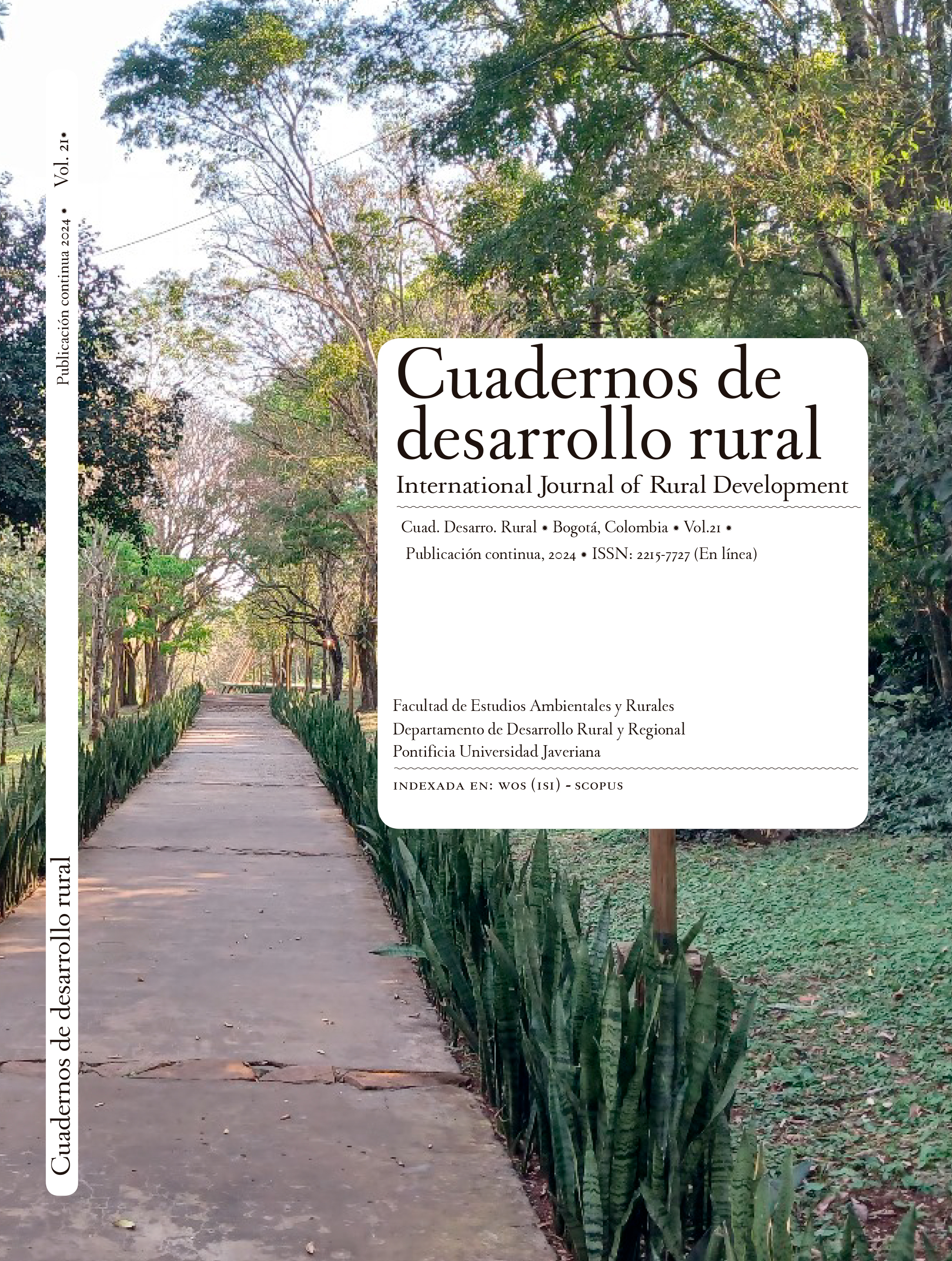Resumo
The traditional agricultural economic systems, mainly in developing nations, faces various challenges including reduction in cultivated land, decreasing crop productivity, declining groundwater levels, changing pest and disease patterns, and overall climate variability. Adapting to these modifications requires considering different factors, including the information and communication technologies (ICTs). Yet, these factors and their impact remain untapped for smart farming. The representative sample of 300 farmers were chosen by using a simple random sampling technique from villages of Lahore and Multan Pakistan. The multinomial logit regression method was used to identify the determinants of ICTs adoption in agriculture. The research findings highlighted that the education level of farmers, farmers’ association, compatibility of innovation, relative advantage of technology, observability of technological innovation, access to agricultural extension services, capacity building initiatives, and access to AI tools were promoting farmers’ digital inclusion in agriculture significantly. Absolutely, initiating awareness campaigns and capacity building programs with the collaborative efforts of agricultural extension and advisory service departments may be highly effective for fostering understanding among small landholders regarding the significance of ICTs in agriculture. Access to agricultural extension services is crucial for enabling the farming community to make informed decisions about crop cultivation, discover new market opportunities, and adopt new information and communication technologies. Moreover, the study suggested that government officials, policy makers, farmers, and agricultural organizations should emphasized on these attributes while advocating for sustainable digital agricultural practices to promote the welfare of small landholders and rural development.

Este trabalho encontra-se publicado com a Licença Internacional Creative Commons Atribuição 4.0.
Direitos de Autor (c) 2024 Manan Aslam, Li Zhiwen, Mona S Alwahibi, Mohamed S. Elshikh, Syed Wajahat Mashkoor


